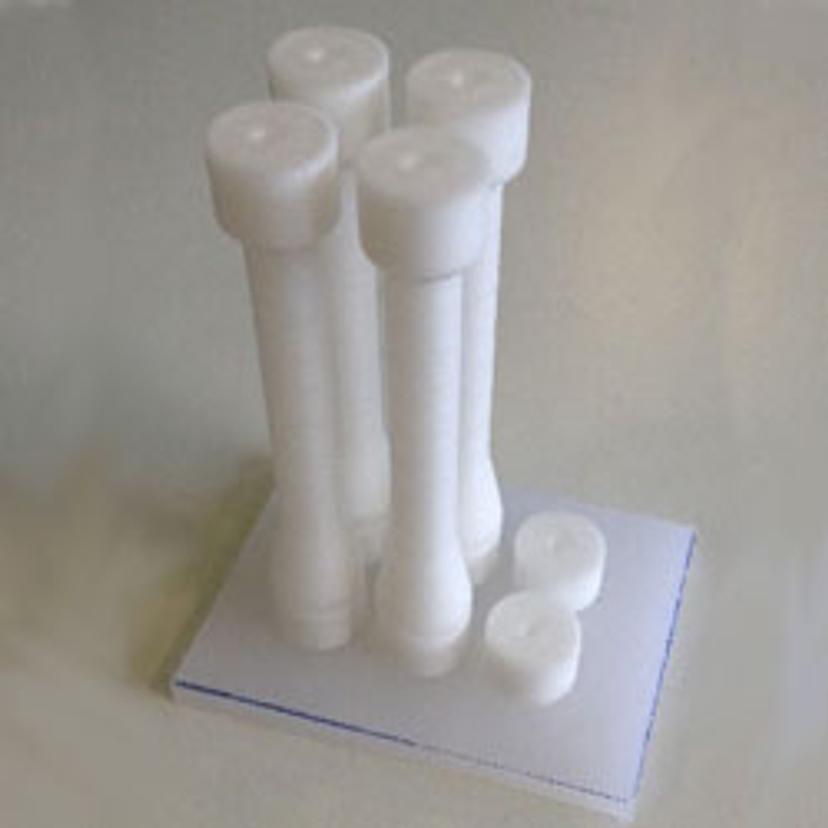Low Cost 3D Printed Reactors for Continuous Flow Synthesis
10 Jan 2018
Uniqsis reports how chemists at the School of Pharmacy, University College London (UK) have been using a FlowSyn™ continuous flow reactor system.

Flow chemistry is an ideal approach to chemical synthesis where reactions can readily be optimised via simple iterations and can easily be scaled up. However, one of the challenges are the associated costs and fixed formats of the reactors themselves. As such, the Hilton Research Group within the UCL School of Pharmacy sought to purchase a flexible continuous flow system that could be readily integrated with 3D printed reactors.
Dr Stephen Hilton, head of the research group said, "The FlowSyn flow reactor was ideal for our needs due to its flexibility, robustness and in particular, the excellent technical support from the Uniqsis team. Their expertise and advice made the purchase straightforward and through ongoing communications have enabled us to readily integrate our novel 3D printed reactor chips into continuous flow. Without their excellent support, the reactors would have taken much longer to develop and we wouldn't be where we are now".
Dr Hilton added "One of the challenges of developing and integrating 3D printed reactors into continuous flow synthesis has been the poor solvent compatibility of standard 3D printed plastics such as ABS and PLA. As such, we needed to work with polypropylene which has been traditionally hard to 3D print due to its tendency to produce poorly resolved objects. Via an iterative approach using an Ultimaker 3D printer, we developed a facile process to 3D print solid, solvent-resistant objects. Once this had been achieved, the next step was to design and print a reactor which would fit within the glass column compartment of the Uniqsis continuous flow reactor. The columns are low cost, optimised for the Uniqsis flow reactor and can be readily modified, making them ideal for exploration of a range of reactions. Using the glass column compartment, they can be heated to 150 °C. As such, it is ideal for a range of reactions and is compatible for a number of solvents ranging from chlorinated through to DMF".
Using the FlowSyn system and 3D printed reactor chips – Hilton Group research chemists have been developing a continuous flow approach to the Suzuki-Miyaura reaction. The flexibility and ease of use of the FlowSyn system has enabled rapid reaction optimisation.
The FlowSyn from Uniqsis is a compact integrated continuous flow reactor system designed for easy, safe and efficient operation. The FlowSyn range includes models for performing single or multiple homogeneous or heterogeneous reactions, either manually or automatically. The range of chemistries that can be explored with Uniqsis’ integrated and modular flow chemistry systems grows ever wider and is exemplified by the growing number of applications published both in the academic press and in Uniqsis’ own application notes. Typical examples of flow chemistry applications include hydrogenation, nitration, bromination, metalation, molecular rearrangements and synthesis of compounds such as dihyropyridine, indole, pyrazole, quinolinone and benzimidazole.
Do you use Uniqsis products in your laboratory? Leave a review today for a chance to win an iPad or a $400 Amazon voucher
